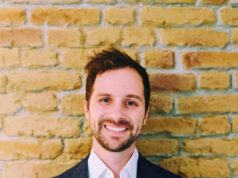SIX CITIES SELECTED TO RECEIVE FREE NEIGHBORHOOD DEVELOPMENT CONSULTATIONS UNDER FOURTH YEAR OF US EPA GRANT TO GLOBAL GREEN, USA
Sustainability Experts from Global Green USA to Visit Neighborhoods Across the Country in 2015
Los Angeles, CA —- August 25, 2015 – (RealEstateRama) — Six American communities will receive free sustainable neighborhood planning and design consultation in 2015-2016 from Global Green USA with the help of a grant from the Environmental Protection Agency’s (EPA) Building Blocks for Sustainable Communities Program. Global Green will assemble a team of sustainability experts to conduct three-day visits to communities and provide comprehensive recommendations for infrastructure and policy changes aimed at helping the communities build a future that is more resource-efficient, livable, healthy, equitable, and environmentally responsible.
Winners Announced
Cincinnati, OH; Memphis, TN; New Orleans, LA; Phoenix, AZ; Seattle, WA; St. Louis, MO; were competitively selected for the free consultations based on several criteria, including need for assistance, urgency, substantial upcoming projects and community engagement.
“Cities are responsible for up to seventy percent of global warming pollution, but they can also be the laboratories for climate friendly solutions that save money, improve health and quality of life,” said Walker Wells, Director of Programs, Global Green “For nearly two decades Global Green has been helping cities create sustainable plans for the future and we are excited to be able to bring our expertise to these six deserving communities.”
Starting in October, the Global Green sustainability team will visit each of the communities with other planning and sustainability experts from around the country— including Raimi+Associates, Farr Associates, the USGBC, and Agora Group. During the site assessment, the team will identify a neighborhood’s positive qualities, consult with community stakeholders in meetings and public workshops, and identify major opportunities to improve the sustainability of each neighborhood.
At the conclusion of the visit, the team will present recommendations for both physical and policy changes that may include streetscape improvements, ecological restoration, integrated energy and water infrastructure, new standards for in-fill and transit-oriented development, or zoning code revisions to allow for urban agriculture or mixed-use development.
The sustainability experts evaluating the communities will use the LEED for Neighborhood Development (LEED-ND) standard, a nationally recognized method for creating neighborhoods that are walkable, bikeable, resource-efficient, and equitable. Benefits of LEED-ND neighborhoods can include lower municipal operations costs, reduced infrastructure costs, increased use of alternate transportation, improvements to public health, and environmental protection. LEED-ND was developed by the US Green Building Council (USGBC), the Congress for the New Urbanism, and the Natural Resources Defense Council.
The assistance to the six communities is made possible by a grant to Global Green USA from the U.S. Environmental Protection Agency’s Office of Sustainable Communities under their Building Blocks for Sustainable Communities Program. Global Green and three other nonprofit organizations—Forterra (formerly Cascade Land Conservancy), Smart Growth America and Project for Public Spaces—received these competitively awarded grants to help protect the environment and improve overall quality of life for communities.
In the first three years of the grant, Global Green USA visited 23 cities across the country. Previous cities receiving assistance in 2012, 2013, and 2014 included: Los Angeles, CA; Long Beach, CA; Santa Monica, CA; Dubuque, IA; Oak Forest, IL; Long Beach, NY; Westerly, RI; Oakland, CA; Lakewood, CO; Lafayette, IN; Louisville, KY; Dearborn, MI; Eden Prairie, MN; Greensboro, NC; Philadelphia, PA; Burlington, VT; Camden, NJ; Cary, NC; Hoboken, NJ; Milwaukee, WI; Montgomery, AL; Staten Island, NY, and Toledo, OH.
Recommendation reports for these cities can be found by visiting:
For more information about LEED-ND visit: www.nrdc.org/cities/smartgrowth/files/citizens_guide_LEED-ND.pdf
A guide for how LEED-ND can be used by local governments is available here: http://www.usgbc.org/Docs/Archive/General/Docs6131.pdf
More about US EPA’s Office of Sustainable Communities Building Blocks for Sustainable Communities Program is available here: www.epa.gov/smartgrowth/buildingblocks.htm















